Tyrannical Tarquin The Proud: The Seventh And Last King Of Rome Was Banished
A. Sutherland - AncientPages.com - The seventh and last king of Rome was Tarquin the Proud, who reigned between 535 BC–509 BC. Tarquin - a tyrant noted for his cruelty - had ruled Rome for more than twenty years after murdering the previous king, Servius Tullius, and seizing his throne.
 Sandro Botticelli: The Story of Lucretia. Source
Sandro Botticelli: The Story of Lucretia. Source
The Tarquins royal dynasty was of Etruscan heritage; they were influential in the region, ruling from around 616 BC to 510 BC. The Etruscans, who were in many ways more advanced than the Romans at this time, extended their power southward. Their influence was apparent, according to Etruscan inscriptions from this period.
Reckless King Wanted To Limit Power Of Senate
Tarquinius ruled wisely and dynamically; he ordered swamps and marshes to be drained and led their waters to the Tiber River, employing the city's sewers and building an open market area.
Many temples were built throughout the city, including the Temple to Jupiter, established in 509 BC, just after the last Etruscan king was dethroned.
Nonetheless, he was a reckless ruler who officially continued his father's work. Still, he wanted to break the power of the Senate, and by acting as a ruler of violence and terror, he wished to secure his government. As he did not re-occupy the seats of the senators who were banished or dead, he intentionally tried to reduce the influence of the Senate.
The Tarquin Dynasty had to step down, along with king Tarquin the Proud, who finally lost power due to his son Sextus's rape of Lucretia, an honorable noblewoman. Widespread accusations angered the people of Rome that Tarquin's son Sextus, had raped Lucretia. As she could not bear the shame, she decided to commit suicide.
"She drew the dagger she was keeping concealed under her robes, and plunging it into her breast, with a single stroke pierced her heart." (Dionysius of Halicarnassus, Roman Antiquities Book IV)
 Tarquinius Superbus makes himself King; from The Comic History of Rome by Gilbert Abbott à Beckett (c. 1850s). Public Domain
Tarquinius Superbus makes himself King; from The Comic History of Rome by Gilbert Abbott à Beckett (c. 1850s). Public Domain
Sextus violated his cousin Collatinus' wife, and this incident had serious consequences. His other cousin, Brutus, raised the people against the rule of such a dishonorable house and the Tarquins' fall. A popular uprising in 509 BC led to the establishment of the Roman Republic.
Livy described the rape of Lucretia in "Ab Urbe Condita" and Dionysius of Halicarnassus in "Roman Antiquities" Book IV; however, their versions of the story differ in detail.
In "The Drama of the Tarquins," Agnes Kirsopp Michels writes:
"Dionysius seems much more interested in Brutus and the actual founding of the republic, while Livy emphasizes the moral side of the story, the chastity of Lucretia, and the villainy of the Tarquins."
According to Roman tradition, the rape of Lucretia and her death was a direct cause of the outbreak of the uprising led by Lucius Junius Brutus. These two events contributed significantly to overthrowing the monarchy and the establishment of the Roman Republic.
The transition of Rome from a monarchy to a republic started in the latter part of the 6th and early 5th centuries BC, and this also occurred throughout the southern parts of Italy and Sicily. The process was not easy; it led to internal social tensions, but it was necessary.
Tarquin the Proud was banished from Rome, and the monarchy was overthrown. His attempts to return to Rome failed. He found the city gates closed in front of him and a decree of banishment passed against him.
Romans and, more specifically, the Centuriate Assembly (Latin: comitia centuriata) of the Roman Republic was one of the three voting assemblies in the Roman constitution that chose Brutus and Collatinus as the first consuls. Rome started its new life as a republic.
After this dramatic incident, Sextus Tarquinius' proceeded to Gabii, seeking to make himself king. It never happened; he was killed in revenge for his past wrongdoings. (Titus Livius, 'Ab Urbe Condita.')
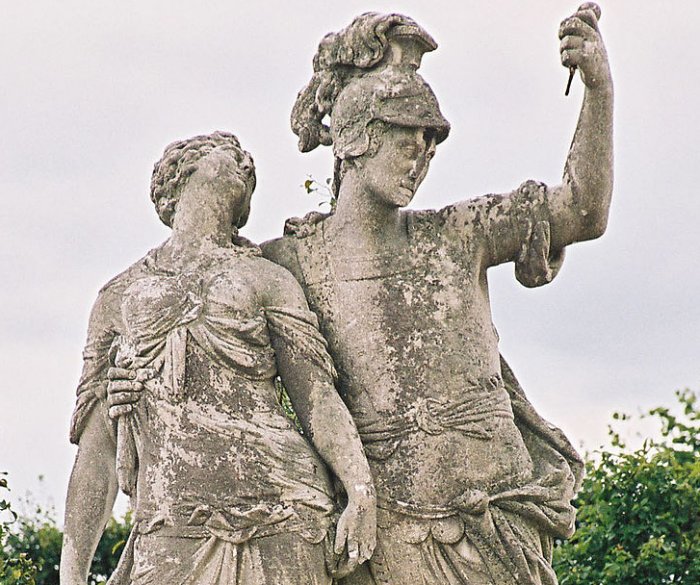 Brutus holding the knife and swearing the oath, with Lucretia. Image credit: schurl50 - Public Domain
Brutus holding the knife and swearing the oath, with Lucretia. Image credit: schurl50 - Public Domain
After more than 200 years of monarchy, the Romans decided it was time to rule themselves.
Two men - Lucius Junius Brutus and Lucius Tarquinius Collatinus, were chosen to be the first two consuls of the city, with the responsibility to act as joint heads of state. Their duties lasted only one year, and each of them could reject any action of the other; thus, they could mutually and intentionally limit the power given to them.
Hope For Liberation From Tyranny
The overthrow of the monarchy and the foundation of the Roman republic were significant events in the city's history.
It was the beginning of Rome's liberation from tyranny.
"In Roman historical mythology… liberty had been won for the citizenry through the expulsion of Tarquin the Proud, the last of the Etruscan kings. This was a myth that never died.
Julius Caesar was murdered because he showed every sign of progressing from a perpetual dictator (which was bad enough) to a Hellenistic-style king." Christopher Rowe, The Cambridge History of Greek and Roman Political Thought.
Written by – A. Sutherland - AncientPages.com Senior Staff Writer
Updated on December 10, 2022
Copyright © AncientPages.com All rights reserved. This material may not be published, broadcast, rewritten or redistributed in whole or part without the express written permission of AncientPages.com
Expand for referencesMichels, Agnes Kirsopp. "The Drama of the Tarquins." Latomus10, no. 1 (1951): 13-24. Accessed January 27, 2020
Livy, The Early History of Rome
Charlotte Mary Yonge, Young Folks' History of Rome
Jackson, Roy. Rome: Roman Empire
Christopher Rowe, The Cambridge History of Greek and Roman Political Thought
More From Ancient Pages
-
 Unusual Viking Secret Hidden Underground In California Reminds Of A Similar Discovery In Colorado
Featured Stories | Sep 12, 2024
Unusual Viking Secret Hidden Underground In California Reminds Of A Similar Discovery In Colorado
Featured Stories | Sep 12, 2024 -
 Different Story Of Odin’s Sons Balder And Hoder In Norse Mythology
Featured Stories | Nov 26, 2020
Different Story Of Odin’s Sons Balder And Hoder In Norse Mythology
Featured Stories | Nov 26, 2020 -
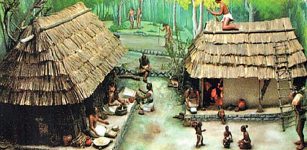 Ancient Maya: Wealth Inequality And Despotism That Governed The Society
Archaeology | Mar 26, 2021
Ancient Maya: Wealth Inequality And Despotism That Governed The Society
Archaeology | Mar 26, 2021 -
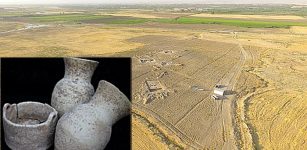 Mesopotamian People Liked To Drink Beer Using Variety Of Drinking Vessels
Archaeology | Jun 28, 2018
Mesopotamian People Liked To Drink Beer Using Variety Of Drinking Vessels
Archaeology | Jun 28, 2018 -
 Rare Gilded Mask Discovered On Mummy Of Ancient Egyptian Priest Serving Sky Goddess Mut
Archaeology | Jul 17, 2018
Rare Gilded Mask Discovered On Mummy Of Ancient Egyptian Priest Serving Sky Goddess Mut
Archaeology | Jul 17, 2018 -
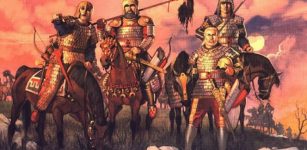 Will Ancient DNA Unravel History Of The Scythians From Central Asian Steppe?
Archaeology | Mar 29, 2021
Will Ancient DNA Unravel History Of The Scythians From Central Asian Steppe?
Archaeology | Mar 29, 2021 -
 1,500-Year-Old ‘Magical Mirror’ To Protect Against Evil Eye Discovered By A Teenager In Israel
Archaeology | Aug 9, 2023
1,500-Year-Old ‘Magical Mirror’ To Protect Against Evil Eye Discovered By A Teenager In Israel
Archaeology | Aug 9, 2023 -
 Young Boy Finds Unique Micro-Mosaic Cross Medallion In Jerusalem
Archaeology | Jan 3, 2025
Young Boy Finds Unique Micro-Mosaic Cross Medallion In Jerusalem
Archaeology | Jan 3, 2025 -
 Population Pressure And Prehistoric Violence In The Yayoi Period Of Japan
Archaeology | Aug 30, 2021
Population Pressure And Prehistoric Violence In The Yayoi Period Of Japan
Archaeology | Aug 30, 2021 -
 The Black Pyramid Of Amenemhat III – Mysterious Underground Chambers And Lost Ancient Treasures
Featured Stories | Aug 9, 2021
The Black Pyramid Of Amenemhat III – Mysterious Underground Chambers And Lost Ancient Treasures
Featured Stories | Aug 9, 2021 -
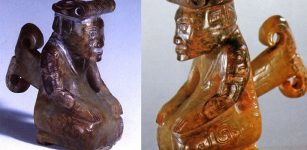 Peculiar Artifact Discovered In Tomb Of The Warrior Queen Fu Hao
Artifacts | Oct 26, 2018
Peculiar Artifact Discovered In Tomb Of The Warrior Queen Fu Hao
Artifacts | Oct 26, 2018 -
 Re-Writing History Of England’s Domesday Book Of William I The Conqueror
Archaeology | Nov 27, 2018
Re-Writing History Of England’s Domesday Book Of William I The Conqueror
Archaeology | Nov 27, 2018 -
 Binary Code Was Used In Ancient India And Polynesia Long Before Leibnitz Invented It
Ancient Technology | Sep 28, 2017
Binary Code Was Used In Ancient India And Polynesia Long Before Leibnitz Invented It
Ancient Technology | Sep 28, 2017 -
 Impressive Study Highlights Female-Led Migration Into Bronze Age Orkney And Wins Prestigious Award For 2023
Archaeology | Apr 4, 2023
Impressive Study Highlights Female-Led Migration Into Bronze Age Orkney And Wins Prestigious Award For 2023
Archaeology | Apr 4, 2023 -
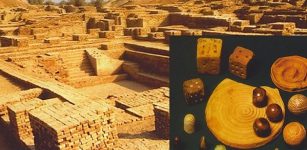 Mysterious Mohenjo Daro Was Home To An Unknown Advanced Civilization Far Ahead Of Its Time
Civilizations | Apr 2, 2014
Mysterious Mohenjo Daro Was Home To An Unknown Advanced Civilization Far Ahead Of Its Time
Civilizations | Apr 2, 2014 -
 World’s Oldest Fairy Tale – The Smith And The Devil Has Survived For Several Millennia
Ancient History Facts | Aug 30, 2017
World’s Oldest Fairy Tale – The Smith And The Devil Has Survived For Several Millennia
Ancient History Facts | Aug 30, 2017 -
 Why Is La Ferrassie Man A Unique And Famous Neanderthal?
Featured Stories | Oct 30, 2023
Why Is La Ferrassie Man A Unique And Famous Neanderthal?
Featured Stories | Oct 30, 2023 -
 Artifacts And Remnants Of 3,000-Year-Old City Unearthed Near Great Zab River In Iraqi Kurdistan
Archaeology | Jun 5, 2017
Artifacts And Remnants Of 3,000-Year-Old City Unearthed Near Great Zab River In Iraqi Kurdistan
Archaeology | Jun 5, 2017 -
 On This Day In History: Battle Of Dormans Was Fought – On October 10, 1575
News | Oct 10, 2016
On This Day In History: Battle Of Dormans Was Fought – On October 10, 1575
News | Oct 10, 2016 -
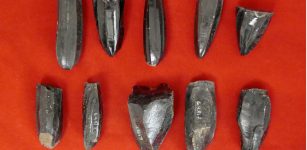 Mayas Utilized Market-Based Economics – New Study
Archaeology | Jan 6, 2023
Mayas Utilized Market-Based Economics – New Study
Archaeology | Jan 6, 2023
